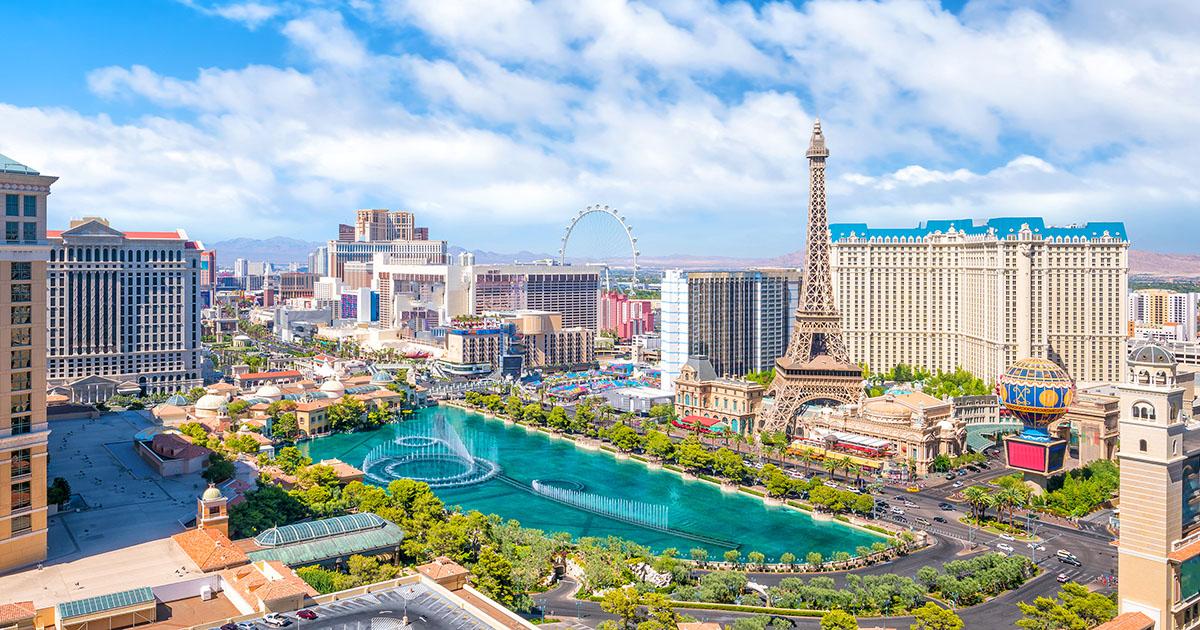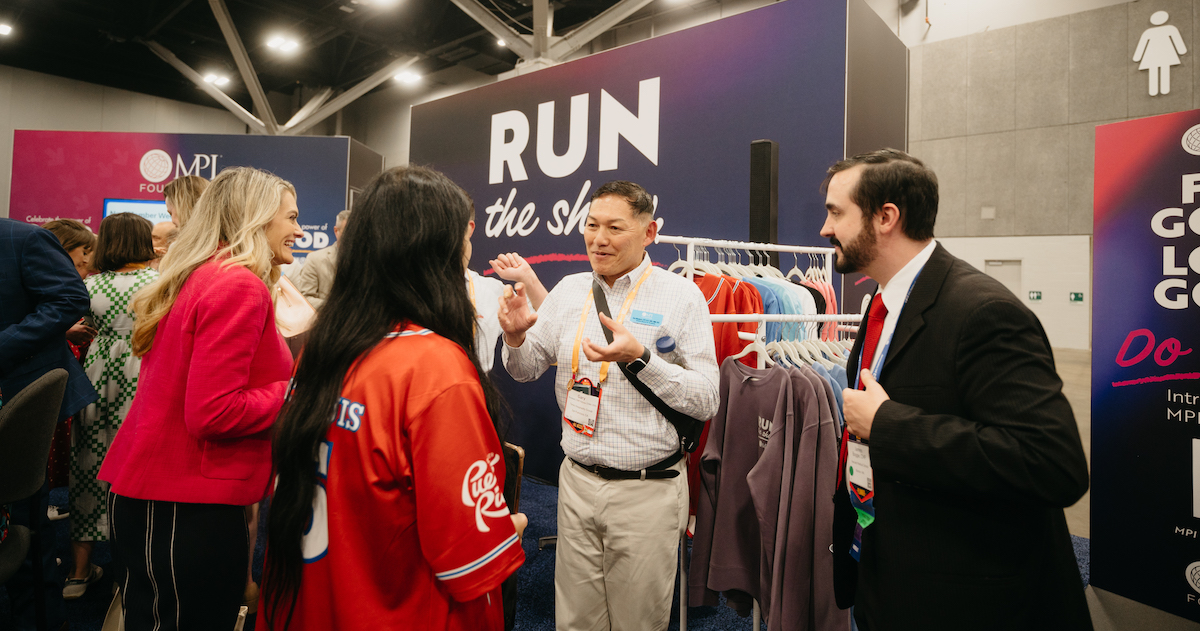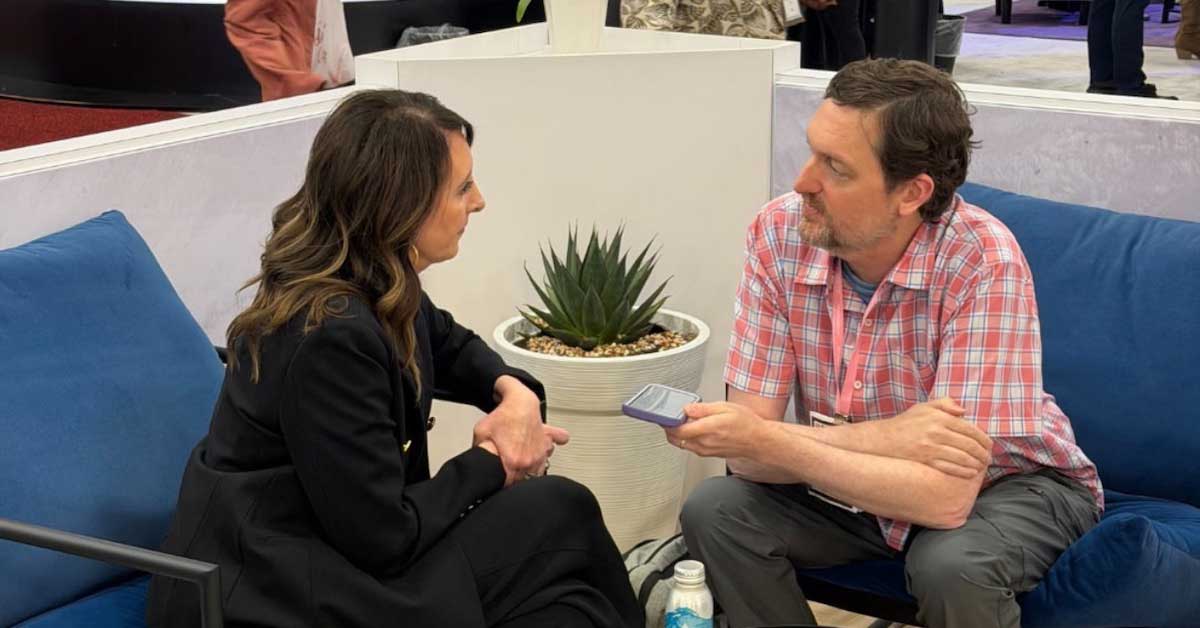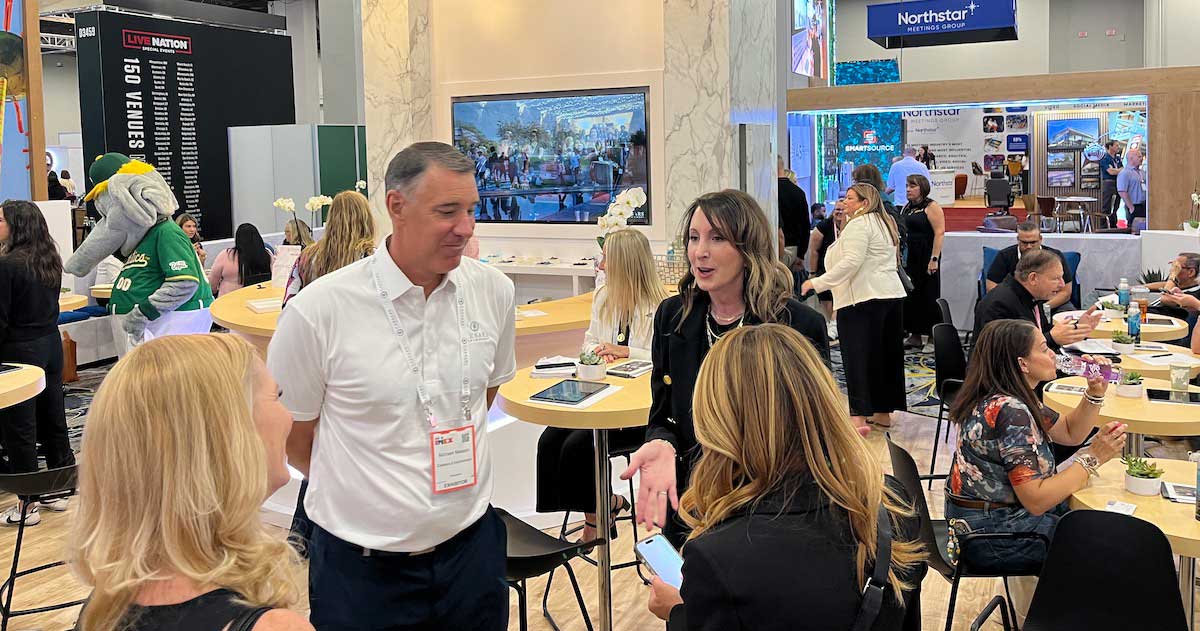Call it the shot heard ‘round the meeting and event industry world. Twice, no less, in the span of a year.
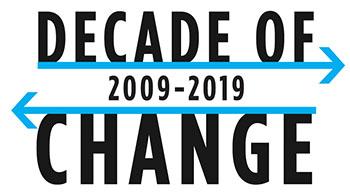 The first came on Feb. 10, 2009, at a town hall meeting in Elkhart, Ind. “You don’t get corporate jets. You can’t go take a trip to Las Vegas or go down to the Super Bowl on the taxpayer’s dime.”
The first came on Feb. 10, 2009, at a town hall meeting in Elkhart, Ind. “You don’t get corporate jets. You can’t go take a trip to Las Vegas or go down to the Super Bowl on the taxpayer’s dime.”
That five-second comment from U.S. President Barack Obama aimed at Wall Street, then in the midst of seeking and receiving government bailouts, instead caught the mecca of the meeting and event industry, Las Vegas, in its crosshairs.
“It’s amazing we can remember that day,” says Michael Massari, chief sales officer at Caesars Entertainment. “We can remember because it’s a date etched in our history.”
Obama would call out Las Vegas again less than a year later at an event in New Hampshire.
“When times are tough, you tighten your belts. You don’t go buying a boat when you can barely pay your mortgage. You don’t blow a bunch of cash on Vegas when you’re trying to save for college. You prioritize. You make tough choices.”
But by that time, the meeting and event industry had taken a long, hard look in the mirror and set in action a movement that would define the industry and put it on a path to show that meetings matter, that face-to-face matters and that “When We Meet, We Change the World” was more than just a slogan.
The industry has undergone transformative change in the last 10 years, arguably spurred on by Obama, who over time became a friend to the industry. It was by no means an easy path. The “AIG Effect” and the lingering recession of the early 2010s would cause angst for meeting planners and suppliers. The evolution of technology—Facebook launched in 2004, Twitter in 2006 and the iPhone was introduced in 2007—dramatically changed the business. So did the emphasis on safety and security, food allergies, the attendee experience, the rising cost of doing business and many other factors.
The last 10 years have also seen an emergence of new facilities and markets that have given planners more options for attendees and for driving face-to-face meetings.
The industry is currently enjoying robust times. The Event Industry Council recently released the Global Economic Significance of Business Events, the first comprehensive study on the economic impact of business events and the power of face-to-face meetings. The study revealed a staggering US$1.5 trillion in worldwide spend in 2017 and nearly 30 million jobs impacted by the meeting and event industry.
The report also showed that business events generated $621.4 billion of direct gross domestic product (GDP) and a direct spend in 2017 of $1.07 trillion while generating $2.53 trillion in total output (business sales).
The $1.5 trillion figure ranks the meeting and event industry as the 13th-largest economy in the world, ahead of the GDP of Australia, Spain, Mexico, Indonesia and Saudi Arabia. The $621 billion direct GDP impact would rank as the 22nd-largest economy globally.
The business events sector directly generated more output (business sales) than many large global sectors, including consumer electronics and computers and office equipment.
The study also found that globally, business events are responsible for more than 10.3 million jobs directly, while nearly 26 million jobs are directly and indirectly supported by global business events.
Business events involved more than 1.5 billion participants across more than 180 countries in 2017, the study said.
Las Vegas has once again emerged as the power player in the meeting and event industry, consistently ranking as the top U.S. meetings destination. With the most hotel rooms in the country, the city is home to three of the 10 largest convention centers and attracted more than 6.6 million convention delegates in 2017.
But there were tense and scary moments in the time leading up to and following Obama’s comments.
“Sometimes you have to get kicked in the belly before you do what you have to do,” Massari says. “It was very damaging what President Obama said about Las Vegas. A lot of companies decided to cancel their meetings and many, many other companies decided not to come. You ask if the industry took it personally? It seemed like the next day the industry was gathering together and trying to figure out what to do.”
The economy was in the midst of a recession when Obama took office in January 2009. The country was losing hundreds of thousands of jobs a month, the stock market was spiraling downward and the GDP was shrinking.
The climate at the time was tense, as well, when it came to the bailouts—with Congress asking questions. The tenuous balance began to tip in Sept. 2008 when American International Group Inc. (AIG) spent about $440,000 to honor independent insurance agents at the five-star St. Regis Resort Monarch Beach in Dana Point, Calif.
This came the same month that the Federal Reserve provided AIG with an $85 billion loan to help the company avoid bankruptcy. The meeting industry also at that time put forth a set of recommended guidelines for the Troubled Asset Relief Program (TARP). The U.S. Department of the Treasury had required TARP recipients to define and make public their policies on expenditures such as entertainment, conferences and events. Christine Duffy, now president of Carnival Cruise Line, then president of Maritz Travel and a former chair of the MPI International Board of Directors (IBOD), was one of the industry leaders at the forefront. AIG was her client at Maritz.
“It was awful for us,” Duffy says. “We lost a significant amount of business that had been booked for the coming year. People were just canceling. No one wanted to be seen as having a meeting. I remember getting the call that the media was descending on the AIG event, which was to honor agents. The thing was outrageous because it was more about perception and optics than reality. It was personally very difficult because people’s lives were being affected.”
It was a public relations disaster and would become known as the AIG Effect.
A month after Obama was sworn in, public outcry forced Wells Fargo, which had received a $25 billion government bailout, to cancel a four-day employee event at Wynn Las Vegas. Morgan Stanley also canceled an employee trip to Monte Carlo, while General Motors was chided for holding a sales meeting at the Sheraton Wild Horse Pass Resort near Phoenix.
An Association of Corporate Travel Executives survey at the time showed that more than 70 percent planned to spend less on travel that year.
Obama’s comments, aimed at the banking industry, instead packed a gut-punch to Las Vegas as other companies including Goldman Sachs and Citigroup pulled events out of Las Vegas.
“When you make a casual, although not malevolent, remark, it can have ramifications, which affect the industry as well as all of the citizens who live in southern Nevada,” Oscar Goodman, the mayor of Las Vegas, said at the time during a press conference.
That was his nice side. He said he was “hotter than fish grease” when he first heard the president’s comment.
“We can promote what we’re famous for, but it has nothing at all to do with the fact that you can have a serious meeting here in Las Vegas,” Goodman said. “We promote ourselves in all respects. We promote ourselves with ‘What Happens Here, Stays Here’ for the edgy promotion and then we promote ourselves when we go out and entice serious companies to come out here and do serious business. We tell them that they can do that here.”
For Caesars Entertainment, the president’s comment cost the company plenty. Massari says Caesars Entertainment used to average about $6 million per quarter in cancellations.
“We got $15 million in cancellations before noon that day,” he recalls. “There was still debate back then as to whether or not his comments mattered because they were a little off the cuff, right, and he was a new president. We weren’t sure really where he stood on travel-related matters. But I know exactly how much [the comments] matter.
“We dropped 30 percent of our meetings business revenue seemingly overnight from 2008, 2009. Something like a third of the business just disappeared. I don’t think you see those types of massive swings too often in your career, and that was really hard to deal with. We didn’t know when the bottom was going to hit.”
It was the start of a downward trend for convention business in Las Vegas. After drawing more than 6 million meeting attendees for three straight years through 2007, Las Vegas would not surpass 6 million convention delegates again until 2016.
About 300,000 hotel rooms booked for Las Vegas were canceled in the month after Obama’s comment, along with a four percent decline in visitors and a six percent decline in conventions compared to the previous year.
That’s when industry leaders went to work, led by the likes of Roger Dow, president and CEO of the U.S. Travel Association, the organization representing all aspects of travel in the U.S.
For Dow, that time stands out as one of the most defining moments of his career. He says President Obama’s comment “tanked the meetings industry. Billions of dollars of cancellations.”
Industry leaders gathered in Washington, D.C., and were told that Rahm Emanuel, Obama’s chief of staff, was going to meet with the group. Dow sent a list of the industry leaders who had gathered, which included CEOs from Disney, Universal, Marriott, Hilton, Hertz and others, and instead, the group was told to head to the White House for a meeting with Larry Summers, Obama’s chief economist.
“They tricked us,” Dow recalls. “We walked into the Roosevelt Room in the West Wing and then President Obama walks in and says, ‘I want to hear more about this.’”
Dow recalls Obama saying, “’I know you’re mad at me for saying that statement about Las Vegas, but it wasn’t aimed at you. It was aimed at bankers.’ I watched Bill Marriott sitting next to him turn to the president and say, ‘You’re now president. When you say something, it has implications.’”
Marriott explained to Obama how his hotel chain has lost so much occupancy in Las Vegas that people were out of work and it wasn’t Marriott, but “the bellman and the people that needed the jobs,” Dow says. “I saw at that point the president really began to understand this industry and actually became one of the biggest supporters of our industry. You see, they looked at our industry and they thought we’re frivolous because we’re always showing people having a good time, but we’re serious as a heart attack when it comes to jobs and when it comes to the economy. So, I think one of the most difficult challenges was getting people to understand this industry is bigger than manufacturing, than the auto industry, the insurance industry, and you should pay attention to it.”
Duffy says the mood was much different than after 9/11.
“People were proud to travel and no one was stopping us from traveling,” she says. “But this time it was an attack on business travel and business meetings. We shouldn’t be taking people to Las Vegas or resorts and luxury hotels. It wasn’t OK to take a meeting to a Ritz-Carlton or Four Seasons.”
Duffy says the advent of virtual meetings gained traction during this time. The biggest obstacle was educating legislators on the impact of face-to-face meetings.
“What we do touches every [congressional] district in the country at all levels,” she says. “Not just senior executives, but the people who clean the rooms and drive the taxis. When there’s a crisis, you can’t expect people to understand the industry and why it matters.”
MPI’s MeetDifferent conference in 2009 focused on the AIG Effect, with Duffy telling the audience that Obama’s $150 million inauguration was hardly an exercise in restraint.
There would be more backlash a year later when Obama dropped his second comment about Las Vegas. By this time, meeting and event industry leaders had rallied to form a group called the Meetings Mean Business (MMB) Coalition, created in 2009 by Dow’s U.S. Travel Association to showcase the value that business meetings, travel and events bring to the U.S. economy. The common goal was to provide resources, tools and information to show the real impact the meeting industry has on businesses, economies and communities. The group re-launched as a coalition with a sustained campaign strategy in 2014.
This proved critical to keeping the industry unified and focused on showing the value of meetings. Already millions of dollars in meetings and events was cut, redirected or dropped completely. Las Vegas took the brunt, with projections to lose about $20 million. Many companies were canceling events for fear of bad publicity.
One strategy from the MMB included launching a prototype ad touting the value of the industry.
“Want to lose 1 million more jobs? Just keep talking,” was the headline on one concept ad. “All Americans are angry at the recent revelations of bad judgment and excess by some corporate leaders—especially when the result is a taxpayer-funded cleanup. However, targeting business meetings and events is the wrong answer.”
The message went on to say that for every meeting that is cancelled, “jobs are lost—It’s that simple—and it’s happening all across the country,” citing that one out of every eight jobs is linked to travel and tourism.
While the ad was used only at special events and aimed primarily at legislative leaders, the message was clear. A movement was under way, one that would stabilize a ship caught in the storm seas.
“As painful as that was, it was probably one of the greatest days of our industry,” says Michael Dominguez, senior vice president and chief sales officer for MGM Resorts.
At the time, Dominguez was vice president for global sales at Loews Hotels, and he would later serve as chair of MPI’s IBOD as well as co-chair of the MMB Coalition.
“When the president made those unfortunate comments, it forced us to get our act together,” he says. “It forced us to actually have a voice that supports us, to be able to speak with one voice. It was the rallying cry for all of us because we were already getting attacked economically. It didn’t matter if you’re a competitor or not a competitor. How we started speaking with one voice to me is probably our greatest maturation over the last 10 years.
“We’ve seen that as an industry we’re uniting for the right reasons to be able to have a message that is loud enough to be heard by different constituents. It taught us more than anything.”
Obama came full circle in 2010, signing into legislation the Travel Promotion Act, creating a public-private partnership to promote tourism that would become known as Brand USA, which would receive matching funds from the government against funds raised privately to market the U.S. to global travelers.
Obama traveled to Walt Disney World in 2012, where he stood in front of the Cinderella Castle and announced a new national tourism strategy focused on creating jobs.
“Every year, tens of millions of tourists all over the world come to visit America,” he said. “Makes sense. You got the greatest country on Earth—people want to come. As folks in Orlando know, that’s good for our economy. It means people are renting cars and they’re staying in hotels and they’re eating at restaurants and they’re checking out the sights. It means people are doing business here in the United States. In 2010, nearly 60 million international visitors helped the tourism industry generate over $134 billion. Tourism is the No. 1 service that we export. No. 1. And that means jobs.
“More money spent by more tourists means more businesses can hire more workers. This is a pretty simple formula. And that’s why we’re all here today—to tell the world that America is open for business. We want to welcome you, and to take concrete steps to boost America’s tourism industry so that we can keep growing our economy and creating more jobs here in Florida and all across the country.”
The MMB Coalition continues to be a success for the meeting industry, serving as an advocate through stewardship, thought leadership and events that bring the industry together, such as Global Meetings Industry Day. Paul Van Deventer, president and CEO of MPI, and Julie Coker Graham, president and CEO of the Philadelphia CVB, are the current co-chairs.
Las Vegas would recover. By 2013, the number of convention delegates surpassed 5 million for the first time since 2007, and that number increased to more than 6 million in 2016 and a record 6.6 million business travelers in 2017.
The city hosts about 22,000 meetings a year and boasts nearly 147,000 hotel rooms. The meeting and event industry supports 65,000 jobs while generating more than $9.3 billion in economic impact.
Las Vegas has more than 11 million square feet of meeting space—with more coming such as CAESARS FORUM (a 550,000-square-foot conference center), new space at ARIA Resort & Casino, Park MGM and a 1.4 million-square-foot expansion to the Las Vegas Convention Center. A new football stadium is under construction for the NFL’s Oakland Raiders that will expand the city repertoire of facilities and attractions.
That bodes well for the future, says Steve Hill, who became CEO of the Las Vegas Convention and Visitors Authority (LVCVA) in September. The city has about $17 billion in new projects in the works.
“In that 10-year period of time we’ve obviously more than recovered,” he says. “As you see up and down the Strip, properties are responding to the demand for more and more space. The convention and meetings industry is as strong I think as it’s ever been, and the outlook is very bright, and the properties are investing in that. We’re doing it at the LVCVA, Caesars is doing it, MGM is doing it, Wynn’s doing it, Resorts World is doing it. We’re going to add huge amounts of minimum inventory just over the course of the next three to five years.
“We realize how important it is to make sure that people get the connection between what the industry means not only directly to our community, but indirectly as well, and that it’s OK to combine business with having fun, and there’s no place like Vegas to do that.”
Duffy says the meeting industry must remain vigilant and continue to work together to show the economic impact and value of meetings and events. The CEO roundtables each year are another example of how industry leaders are doing due diligence.
“What’s interesting since that time, there are more and more threats to our industry,” she says. “There’s been a lot of discussion about inbound travel to the U.S. and how we balance that against security concerns that are real and exist. There are all sorts of other things that are more complex than 10 years ago. We need to make sure we are wide-eyed and viewing things with the broadest lens to see what has impact on our business. That is the kind of commitment and support we need over the long term, whether for meetings, conventions or leisure travel. We need to always be thinking of our industry more broadly.”
